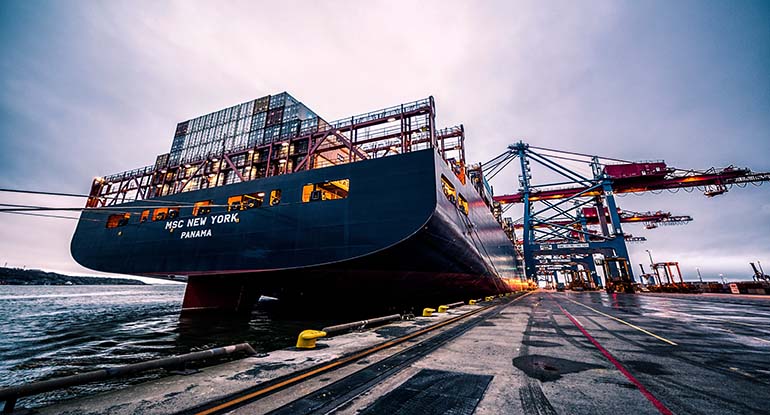
The Impact of Blockchain Technology in Transportation and Logistics Industry
From fighting counterfeit products to increasing transparency, blockchain technology has all the potential to revolutionize the logistics industry. Blockchain records every transaction as a block in multiple databases in a network that is connected through peer-to-peer nodes.
The decentralized nature of blockchain makes it practically impossible to alter the information once a block is added without getting noticed. This article will discuss the impacts of blockchain technology in the logistics and transportation industry.
Efficient Global Trade
The logistics and transportation industry are already investing a considerable amount in tracking technologies, but they aren't proving efficient, secure, and reliable.
The logistics industry can utilize blockchain technology to optimize the cost and time associated with trade documentation and administrative processes for ocean freight shipments.
Maersk and IBM have developed a blockchain-based system that allows each party in the supply chain to view their goods' status, such as their container's present location. This system can even provide information such as customs documents' status and view bills of lading and other data.
Fighting Counterfeit Drugs
Over the years, pharmaceutical companies have struggled to keep track of their products throughout supply chain management, which has led to the introduction of counterfeit products into the market.
DHL and Accenturehave created a blockchain-based serialization project that assigns a unique number to each sealable unit, which is then linked to all the vital information such as the product's origin, batch number, and expiration date. This enables the pharmaceutical companies to track their package throughout the supply chain management.
This solution maintains the product's traceability and transparency, especially when the units are repackaged for transportation purposes. Moreover, this enables the customers to verify the legitimacy and integrity of the products.
Improving Security and Efficiency of IoT devices
From location management to inventory tracking and warehousing, almost all of the businesses in the logistics and transportation industry are using Internet of Things devices to track products and maintain quality. The unregulated IoT market leaves these devices prone to cyber-attacks.
Blockchain technology offers strong protection against data tampering and can be used to lock access to IoT devices. Companies can also use blockchain to shutdown any compromised devices in an IoT network.
Increase Transparency
The logistics industry is highly fragmented, and one of their main issues is the reliability and accuracy of the available information. Companies and customers want to see precise data such as where an item is, where it came from, and where it's going.
Blockchain provides the ability to improve transparency by giving information such as how they are produced, where they come from, and how they are handled.
Since these information are stored in a blockchain-based system, they provide logistics companies the ability to trace and track their products with great precision. Businesses can utilize these pieces of information to provide proof of legitimacy and authenticity.
Settling Down Disputes And Payment
A smart contract is a virtual contract containing a predetermined set of terms and conditions among peers. These terms and conditions are written in codes and then stored in a decentralized blockchain network. Whenever the coded conditions statements are fulfilled, the associated functions are automatically executed.
Smart contracts are programmed with all the necessary information needed to automate the transaction process throughout the supply chain. Suppose the terms were agreed to realize a certain amount after a certain stage of the transportation process. In that case, this digital contract will automatically pay the party once it provides all the necessary documents that verify the statement.
These transactions are trackable and immutable. Smart contracts allow transactions to be carried out among indistinguishable parties without the need of a middleman to settle down disputes.
Conclusion
Blockchain is slowly making its way into the logistics and transportation industry by providing value and boosting operational efficiency and transparency. Multiple projects are already underway to apply blockchain to logistics and transportation, but still, it will take some time to utilize the power that the technology possesses.
